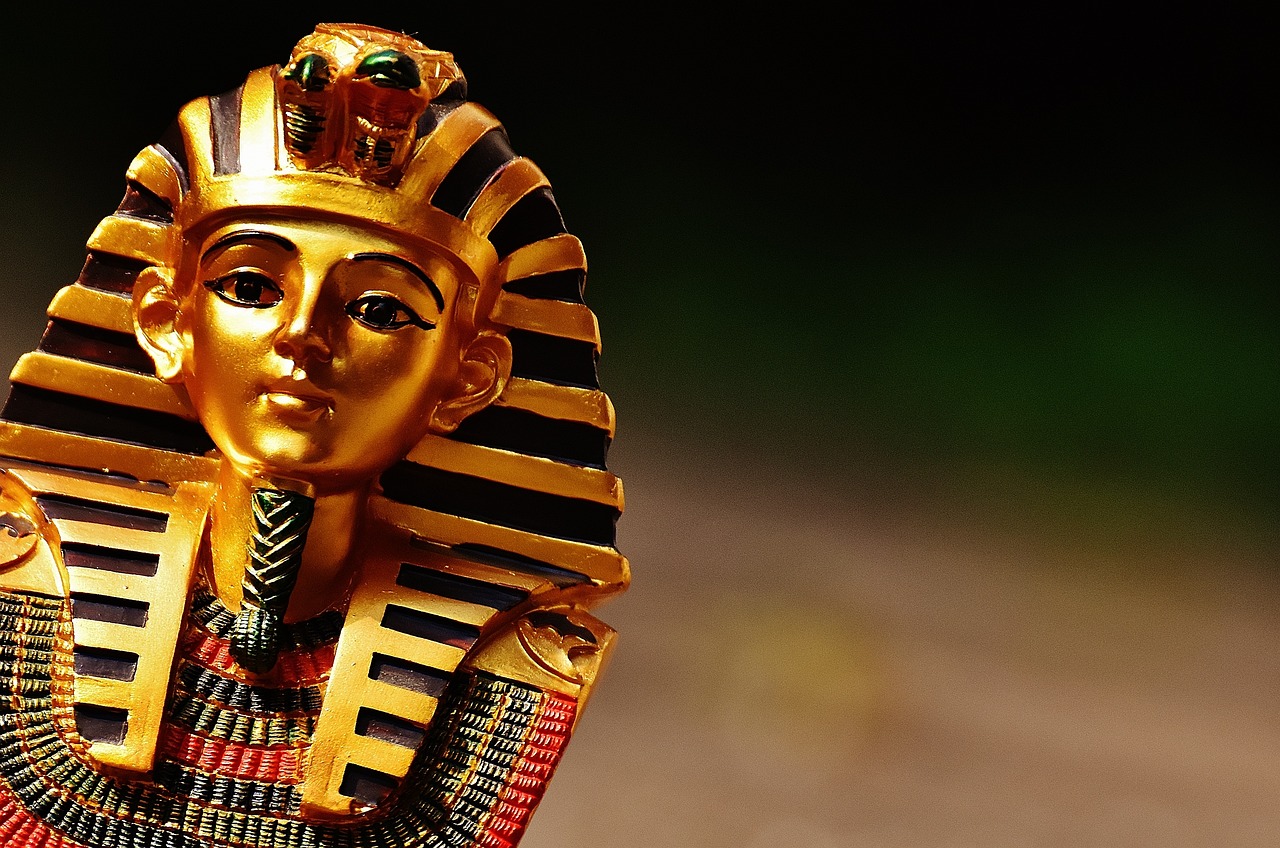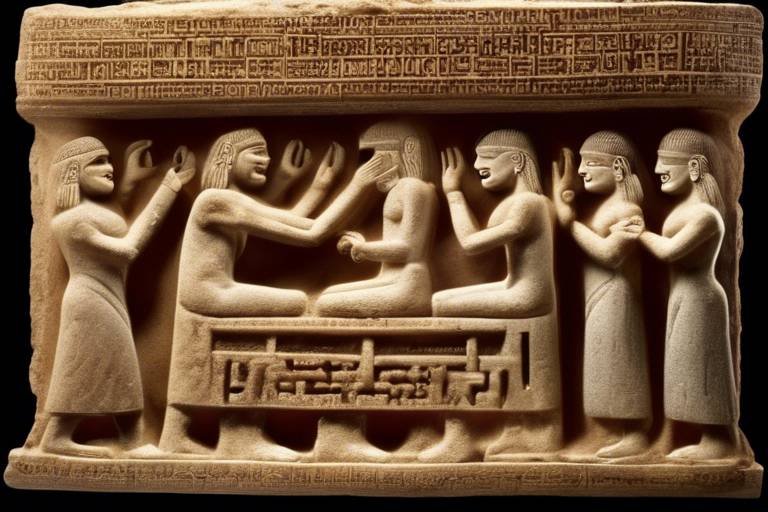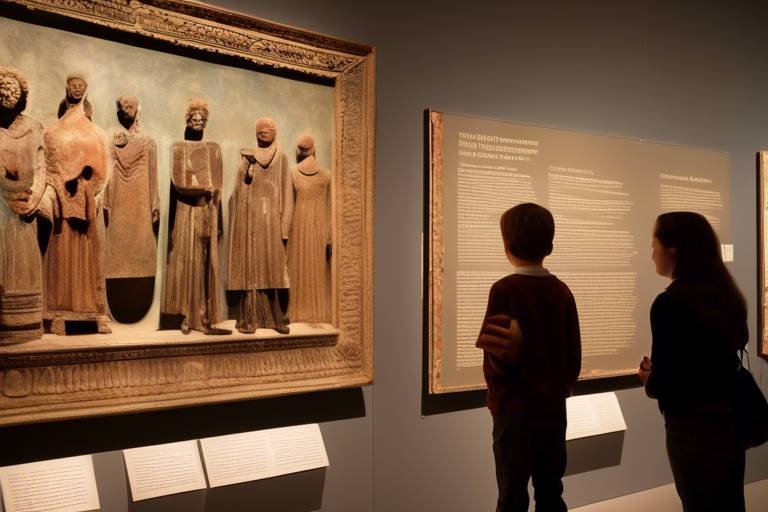The Concept of Karma and Rebirth in Ancient Faiths
The concept of karma and rebirth is deeply rooted in the beliefs of many ancient faiths, shaping the understanding of life, death, and the afterlife. Across various religious traditions, this concept serves as a guiding principle, influencing moral behavior, spiritual practices, and the pursuit of enlightenment.
In Hinduism, karma is regarded as the cosmic law of cause and effect, where one's actions in past lives determine the circumstances of future incarnations. Rebirth is seen as a continuous cycle of birth, death, and rebirth, with the ultimate goal of achieving liberation from this cycle through spiritual growth and self-realization.
Similarly, Buddhism places great emphasis on karma and rebirth, highlighting the interconnected nature of all beings and the impermanence of existence. The concept of rebirth in Buddhism is intricately linked to the pursuit of enlightenment and the cessation of suffering, guiding practitioners towards a state of ultimate peace and wisdom.
In Jainism, karma is believed to be a tangible substance that binds to the soul through actions, influencing the cycle of rebirth and spiritual evolution. Rebirth in Jainism is driven by the accumulation of karma, with individuals striving to attain spiritual purity and liberation from the cycle of birth and death.
Daoism, on the other hand, views karma and rebirth as inherent aspects of the natural order, where one's intentions and actions shape their destiny in this life and beyond. Rebirth in Daoism is perceived as a continuation of the cosmic cycle of existence, reflecting the interconnectedness of all life forms and the eternal flow of energy.
Native American spirituality intertwines the concepts of karma and rebirth with a profound respect for the interconnectedness of all living beings. Actions are believed to ripple through the web of life, impacting not only individuals but also the community and future generations, emphasizing the importance of harmony and balance in the cosmic order.
Ancient Egyptian religion incorporated beliefs in karma and rebirth through the concept of judgment in the afterlife, where one's deeds determined their fate in the underworld. The journey of the soul through the realms of the afterlife and the prospect of rebirth were central themes in Egyptian funerary rites, guiding the departed towards spiritual transformation and eternal life.
Greek philosophy delved into the notion of karma through the lens of moral responsibility and the pursuit of a just society. Rebirth was contemplated as a symbolic renewal of the soul through philosophical introspection and ethical conduct, highlighting the importance of virtue and wisdom in shaping one's destiny.
In Norse mythology, the cycles of karma and rebirth were reflected in the interconnectedness of fate and destiny, weaving a tapestry of cosmic forces that influenced the course of life and the afterlife. Actions in the mortal realm were believed to echo through the realms of existence, shaping one's legacy and future incarnations in the eternal cycle of rebirth.

Hinduism
In Hinduism, karma is the law of cause and effect, where actions in past lives determine the circumstances of future lives. Rebirth is a continuous cycle of birth, death, and rebirth until one achieves liberation from this cycle.

Buddhism
Buddhism is a spiritual tradition that places significant emphasis on the concepts of karma and rebirth. In Buddhism, karma is understood as the law of moral causation, where one's actions in past lives influence their future experiences and circumstances. This belief in karma is intricately linked to the idea of rebirth, which is the continuous cycle of birth, death, and rebirth until one attains enlightenment and breaks free from this cycle of suffering.
The concept of rebirth in Buddhism is rooted in the understanding of impermanence and interconnectedness. It teaches that all beings are interconnected, and every action has consequences that ripple through the fabric of existence. Through the practice of mindfulness and ethical living, individuals strive to purify their karma and progress towards liberation from the cycle of rebirth.

Jainism
Jainism is a ancient religion that places a strong emphasis on the concept of karma and rebirth. In Jain belief, karma is not just a metaphysical force but a physical substance that adheres to the soul based on one's actions. This accumulated karma influences the cycle of rebirth, determining the conditions of one's future lives. The ultimate goal in Jainism is to achieve spiritual purity and liberation from this cycle of rebirth, known as samsara.
In Jain philosophy, the path to liberation involves practicing non-violence, truthfulness, non-stealing, celibacy, and non-attachment. By following these principles and engaging in acts of compassion and self-discipline, individuals aim to purify their karma and break free from the cycle of rebirth. Jain teachings also emphasize the importance of self-awareness, mindfulness, and self-discipline in order to transcend the material world and reach a state of spiritual enlightenment.
Jain cosmology describes the universe as an eternal entity, consisting of multiple realms inhabited by various forms of life. Rebirth in Jainism is not limited to human existence but encompasses all living beings, from the smallest microorganisms to the highest celestial beings. Each life form is subject to the cycle of birth, death, and rebirth, driven by the karmic forces accumulated through their actions.
Central to Jain belief is the idea of ahimsa, or non-violence, which extends to all living beings. Practicing ahimsa is seen as essential for minimizing the accumulation of negative karma and progressing towards spiritual liberation. By cultivating compassion, humility, and selflessness, individuals in Jainism strive to break free from the cycle of rebirth and achieve a state of eternal bliss known as moksha.

Daoism
Daoism, also known as Taoism, is a philosophical and spiritual tradition that originated in ancient China. Central to Daoism is the concept of karma and rebirth, which are seen as integral parts of the natural order. In Daoist philosophy, the belief is that one's actions and intentions shape not only their current life but also their destiny in future lives. This idea is rooted in the principle of yin and yang, where balance and harmony are essential for spiritual growth and enlightenment.
Unlike some other religions, Daoism does not focus on a linear progression of rebirths towards a specific goal, but rather emphasizes living in harmony with the Dao, or the Way. This involves cultivating virtues such as simplicity, humility, and compassion, and aligning oneself with the rhythms of nature. Rebirth in Daoism is seen as a continuation of the cosmic cycle of life and death, where the soul evolves and learns through each incarnation.
One of the key teachings in Daoism is the importance of living in accordance with the Dao, which involves following the natural flow of life and embracing change. By practicing mindfulness, meditation, and self-reflection, individuals can cultivate inner peace and wisdom, ultimately transcending the cycle of rebirth and achieving spiritual liberation.

Native American Spirituality
In Native American spirituality, the concept of karma and rebirth is deeply rooted in the interconnectedness of all living beings and the natural world. Native American tribes believe that every action taken has a ripple effect that extends beyond the individual, impacting the entire community and future generations. This interconnectedness is seen as a sacred bond that must be respected and upheld through living in harmony with nature and honoring one's ancestors.
Within Native American spirituality, the idea of rebirth is often intertwined with the belief in the continuity of life energy. It is believed that when an individual passes on, their spirit lives on and is reborn in another form, whether as a new life or as part of the natural world. This cyclical view of life and death emphasizes the eternal nature of the soul and the importance of maintaining balance and respect within the circle of life.

Egyptian Religion
Ancient Egyptian religion is rich with beliefs in karma and rebirth, deeply intertwined with the concept of judgment in the afterlife. Egyptians believed that one's actions in life would be weighed in the afterlife, determining their fate in the next realm. This judgment process was symbolized by the weighing of the heart against the feather of Ma'at, the goddess of truth and justice. If the heart was found to be lighter than the feather, the soul would be deemed pure and granted passage to the eternal afterlife.
Moreover, the journey of the soul through the underworld, guided by various deities such as Anubis and Osiris, was a crucial aspect of Egyptian funerary practices. The soul's ultimate goal was to reach the Hall of Two Truths, where Osiris presided over the judgment of the deceased. Here, the individual would have to recite the Negative Confession, a list of denials of wrongdoing, to prove their moral purity and worthiness for rebirth.
Rebirth in Egyptian religion was not viewed as a continuous cycle like in some other faiths, but rather as a one-time event following judgment in the afterlife. The soul of the deceased, now purified and justified, would be granted eternal life in the Field of Reeds, a paradise-like realm of abundance and bliss. This concept of rebirth was closely linked to the agricultural cycle, symbolizing the eternal renewal of life and the cyclical nature of existence.

Greek Philosophy
Greek philosophy delved deep into the concept of karma, seeing it as a fundamental aspect of moral responsibility and the workings of a just universe. The idea that one's actions have consequences, whether positive or negative, resonated strongly in Greek philosophical thought. For the Greeks, karma was not just a cosmic law but a personal duty to uphold ethical standards and live a virtuous life.
Rebirth in Greek philosophy was often viewed metaphorically, symbolizing the renewal and transformation of the soul through intellectual contemplation and ethical conduct. Philosophers like Plato and Aristotle explored the idea of the soul's immortality and its journey towards enlightenment through philosophical inquiry and moral development. The concept of rebirth served as a guiding principle for personal growth and spiritual evolution.

Norse Mythology
In Norse mythology, the concept of karma and rebirth is deeply intertwined with the cyclical nature of the world and the interconnectedness of fate and destiny. The Norse believed that one's actions in life directly influenced their legacy and future incarnations in the afterlife. This belief in the interconnectedness of actions and consequences shaped their understanding of the world as a web of intertwined destinies, where each individual played a crucial role in the grand tapestry of existence.
Frequently Asked Questions
- What is karma?
Karma is the belief that one's actions in this life will determine their fate in future lives. It is the law of cause and effect, where good actions lead to positive outcomes and bad actions lead to negative consequences.
- How does rebirth work in Hinduism?
In Hinduism, rebirth is the cycle of birth, death, and rebirth that continues until the soul achieves liberation (moksha) from this cycle. The circumstances of each rebirth are determined by the accumulated karma from past lives.
- What is the goal of rebirth in Buddhism?
In Buddhism, the goal of rebirth is to break the cycle of suffering (samsara) and attain enlightenment (nirvana). Rebirth is seen as an opportunity to progress towards spiritual awakening and liberation from worldly desires.
- How does karma affect future lives in Jainism?
In Jainism, karma is believed to be a physical substance that binds to the soul and influences future rebirths. The accumulation of karma determines the conditions of each rebirth and the ultimate goal is to achieve spiritual purity and liberation.
- Is rebirth a central concept in Native American spirituality?
Yes, rebirth is often intertwined with the interconnectedness of all living beings in Native American spirituality. Actions are believed to have consequences that affect not only individuals but also the community and future generations.
- How is karma perceived in Greek philosophy?
In Greek philosophy, karma is explored through the lens of moral responsibility and the idea of a just universe. Actions are believed to have consequences that shape one's destiny, emphasizing the importance of ethical living and philosophical contemplation.



















